Leakage Current on Electrolytic Capacitors
Gideon Analytical Laboratories received about 20 electrolytic capacitors which all had unacceptable leakage current. An electrolytic capacitor (also known as an e-cap) is a capacitor whose anode (+) consists of pure aluminum foil with an etched surface, covered with a uniformly very thin barrier layer of insulating aluminum oxide, which operates as a dielectric. The electrolyte, which covers the rough surface of the oxide layer, operates as the second electrode, the cathode (-). Electrolytic capacitors have a higher capacitance value per unit volume compared to the two other main conventional capacitor families, ceramic and plastic film capacitors. Leakage refers to the gradual loss of energy from a charged capacitor. It is primarily caused by electronic devices attached to the capacitors, such as transistors or diodes, which conduct a small amount of current even when they are turned off. The goal was to determine the cause of the leakage current in the 20 electrolytic capacitors.
Failure analysis ensued. To begin, all the capacitors were tested to measure the severity of the leakage problem. These were all around 120uF capacitors, and all had significant leakage current. A visual inspection was performed but nothing was noticed. Next, the capacitors were disassembled and cross-sectioned in order to perform a true examination. There was pitting and smearing of the oxide surface of the anode foil of the bad capacitors. The capacitor foil is highly questionable. Final analysis revealed several potential problems: the crystal form ratio could be problematic; the thermal and chemical stability of the foil could be suspect.
Gideon Analytical Laboratories is one of the premier electronic failure analysis laboratories in the entire world. We have solved thousands of problems for hundreds of companies since we started over two decades ago. Our experience and knowledge are vast, but we do not rest on our laurels. Our analytical equipment is state of the art, and our creativity and problem-solving abilities are second to none. Help us help your company. If you are having any type of problems with electronic devices, give Gideon Analytical Laboratories a call today.
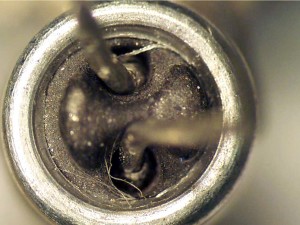
Top of Capacitor
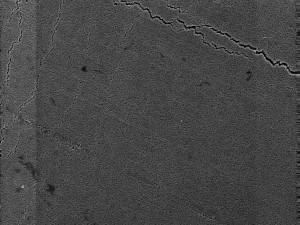
Micrograph of good foil, cracking is normal

Top of Capacitor
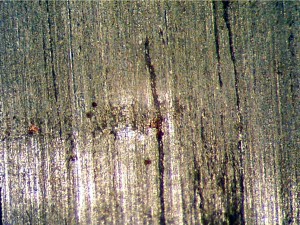
Pitted Anode foil
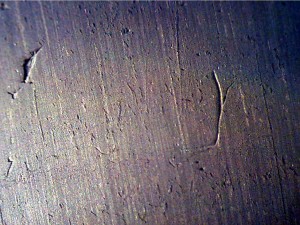
Pitted anode foil on capacitor
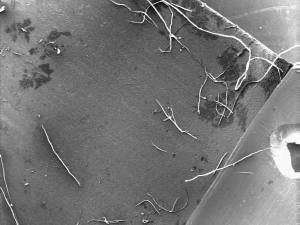
Micrograph of foil, lacks cracks
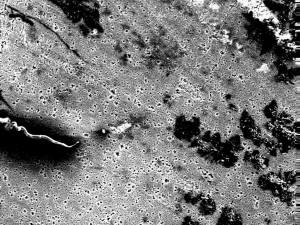
Micrograph #3 of foil

Micrograph #2 of foil